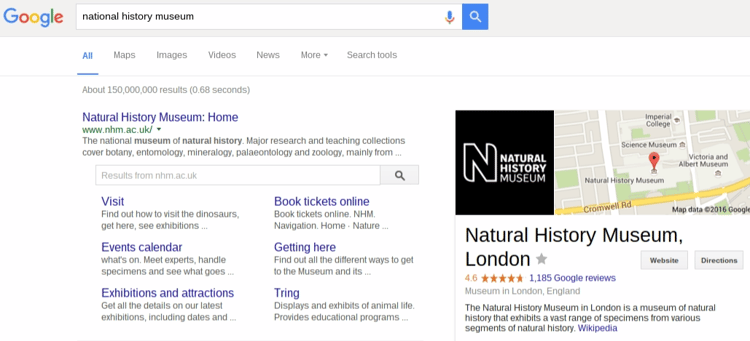Last year, many SEO companies predicted 'voice search' was going to be huge in 2016. So, we decided to have a closer look at the current state of voice search and predict the potential implications voice search could have for SEO.

The current state of mobile & voice search
Without a doubt, we can see mobile search is the future.
eMarketer in 2014 predicted mobile search would surpass desktop in 2015. And this prediction was proved correct in May 2015, when Google revealed there were more mobile Google searches than on desktops in 10 countries (this included the US).
Google's movement to making Google Search a mobile friendly platform shows how they're catering for the trend.
But along with the prominent rise of mobile, it's arguable there will be a natural rise in voice search too.
Apple Siri, Google Now and Windows Cortana
Whilst I've only mentioned the big three, there are many more voice apps joining them. Companies are investing to acquire and develop their voice recognition apps in a bid to conquer voice search.
As Siri was the first to enter the voice battle arena, it seems appropriate to take a closer look at Apple's Siri...
Siri has received critical acclaim for its easy to use software.
The main criticism the programme has faced is: it's difficult to recognise distinctive accents.
Apple's Siri FAQ has said, "as more people use Siri and it's exposed to more variations of a language, its overall recognition of dialects and accents will continue to improve."
It is believed Apple paid over $200 million for Siri. Whilst Siri is a search engine, it works very different to Google. Siri offers best results for action based search queries.
Google's search engine is without a doubt the best search engine, and if Apple had created their own search engine to compete with Google, it would struggle to win. So instead of trying to beat Google at its own game, Apple has been trying to outsmart Google with voice recognition software: Siri.
Since the arrival of Siri, other voice search apps have been entering the ring. Competition is fierce!
In recent years, we've seen how Apple, Windows and Google have been promoting their voice search and recognition software. So, will 2016 be the year of voice search?
Current state of voice search
At the moment we can see the benefits of each voice recognition app:
- Siri - is easy to use and understands most requests.
- Cortana - is a great personal assistant as she remembers your previous requests.
- Google Now - another perfect assistant, Google Now can schedule future calls you have to make and makes travelling simple with instant access to maps.
In a recent article on Medium by Chris Dixon, "What's Next in Computing?" Dixon says that when a new product comes out onto the scene (like PCs, Google, Facebook, etc), there are two phases.
- Gestation phase: this is when the new platform/product comes out. It's usually expensive and quite buggy to use.
- Growth phase: this is when all bugs are fixed, all the platform grows in success and popularity.
Is Voice Search still in the gestation phase?
Voice search has been progressing in leaps and bounds over the years but will there be a definite surge in people using voice search instead of typing a search query?
Currently there are still bugs voice search apps need to fix but overall there is an increase in people using voice search.
One Google survey, asked 1,400 US people and learned 55% of teens use voice search on a daily basis.
Despite many people predicting 2016 to be the year of voice search, there hasn't been much evidence to suggest it definitely will be.
@bhalligan agree with that but the usage must be tiny, it will have pretty much zero impact on standard search (so far)
— Rikki Lear (@rikki_lear) February 21, 2016
@bhalligan could well be, or could end up like 3D TV. Good to play with but impractical day to day. Interesting to see how it plays out
— Rikki Lear (@rikki_lear) February 21, 2016
As mobile search is continuing to sky rocket in popularity, there is a strong suggestion voice search will follow a similar vertical direction. However, we think 2016 won't be the year of voice search.
From the Google survey above, it strongly suggests voice search is popular for younger generations. It saves time and teens are getting used to using this method of internet searching on a daily basis - they're growing up with it.
Just like 3D TV, voice search is fun to play with but it's not always practical. Whilst more users are going to be using mobile platforms to do their online searches, we doubt more people are going to be doing voice searches over standard typing - until the far future, where it becomes the norm to do voice searches.
What will voice search mean for SEO?
Even though we think 2016 isn't the year for voice search, we should be preparing for it. Voice search will have implications for SEO:
1) More long tail keywords
In normal search, you may just type a few relevant words and Google is smart enough to predict what you're searching for.
On Mobile:
"National History Museum"

When typing the search, the search results gives you relevant options.
- Homepage of NHM
- Directions
- Address
- Contact
By Voice:
With voice search, many users will give the specific question of their search query.
"How do I get to the National History Museum?"
The voice search app will then get directions to your query because it understands what you need from your question.
In relation to SEO, you will benefit in voice search results by including longer tailed keywords into your strategy.
2) Content websites will benefit
Since the arrival of the Panda updates on Google, we already know how content is valuable for increasing SEO rankings on search engines.
As voice search is used popularly for question based queries, when it goes onto search engines to grab the most relevant responses. Websites with helpful content in the form of blogs, guides and videos will likely benefit.
The future of voice search
Although we don't think 2016 is the year of voice search, we can see voice search will continue to increase in popularity. We can only wait and see to find out if it really is the future of searching online. For now, you can benefit from voice searches by making changes to your SEO.
- Improve your content
- Add more long tail keywords
How to keep ahead of your competition
Here is the ultimate list of 22 Google ranking factors you need on your website to improve your rankings. Don't let your competition take away your customers because your SEO strategy is weak. Improve it now with our free cheat sheet:
What do you think about voice search? Do you think 2016 is the year of voice search or do we still have a while to wait?
Real Growth. Real Impact.
Avidly named HubSpot EMEA and APAC Partner of the Year
Avidly Activates: The origin story
Time to rethink your whole SEO and content marketing strategy
Why it's vital and how to start building customer-led sales and marketing
How is AI disturbing Google search results and what can you do about it
How to avoid over optimising your website with Hannah Wilson, SEO Specialist
See why enterprises choose Avidly
Let’s build your HubSpot success story
Compelling final call to action - with accompanying link to Contact page








